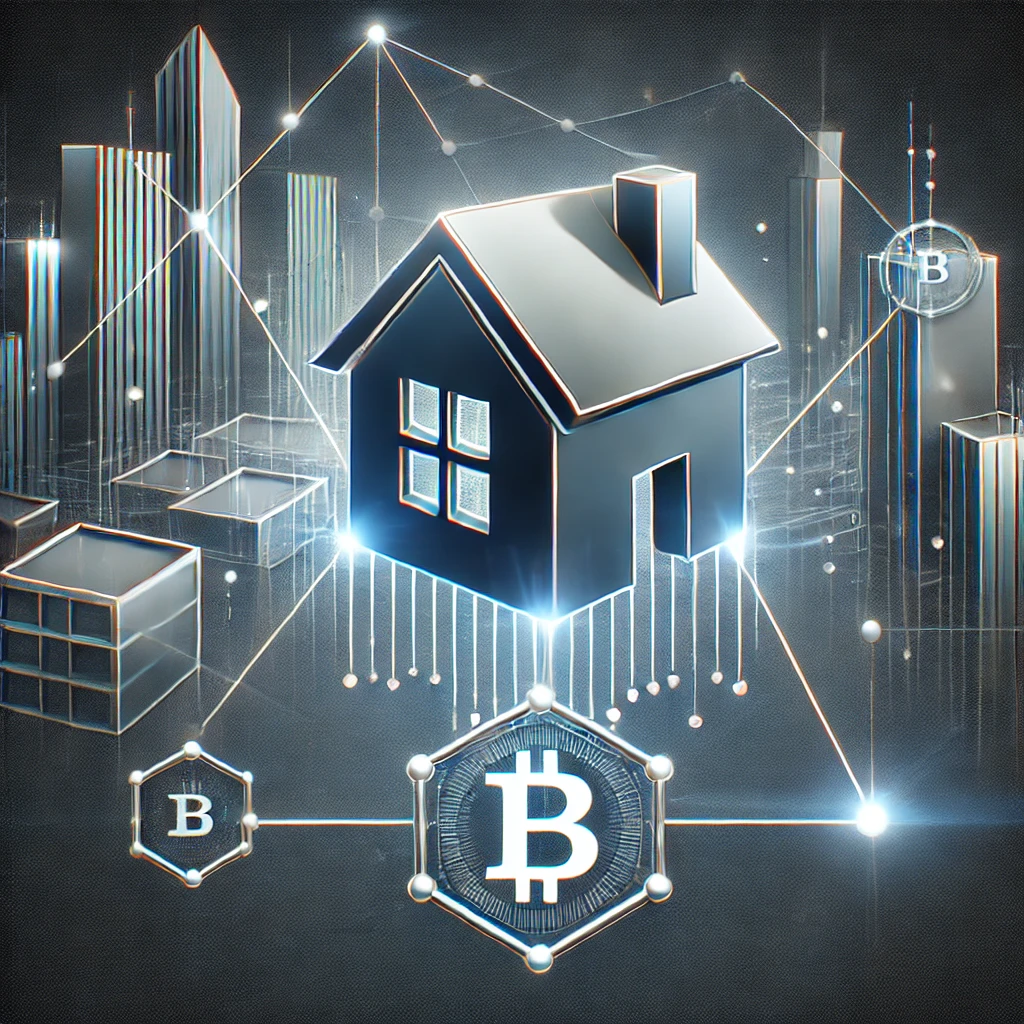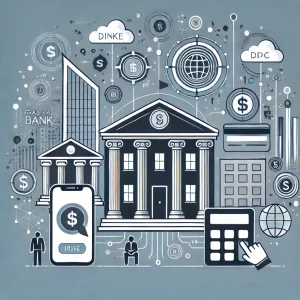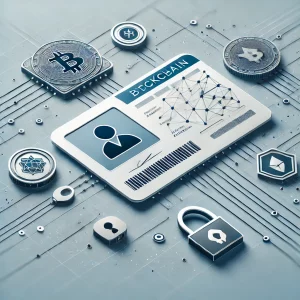How Blockchain is Revolutionizing Real Estate Transactions

The real estate industry has long been associated with complex processes, extensive paperwork, and time-consuming transactions. With technological advancements, the sector is undergoing a transformative shift, and blockchain technology is at the forefront of this evolution. Blockchain, known for its role in cryptocurrencies like Bitcoin, is emerging as a game-changer in real estate by enhancing transparency, security, efficiency, and trust.
Understanding Blockchain Technology
At its core, blockchain is a decentralized, distributed ledger that records transactions across multiple computers in a secure, tamper-proof manner. Every transaction is grouped into a “block” and linked to the previous one, forming a chronological “chain” of records.
Key characteristics of blockchain include:
- Decentralization: No single entity controls the data, reducing risks of fraud or manipulation.
- Transparency: Transactions are visible to all participants, fostering trust.
- Immutability: Once recorded, data cannot be altered, ensuring accuracy and security.
- Smart Contracts: Self-executing contracts with terms written directly into code.
These features make blockchain a perfect fit for addressing challenges in real estate transactions.
Challenges in Traditional Real Estate Transactions
Traditional real estate processes are riddled with inefficiencies and risks, including:
- Lengthy Processes: Closing a real estate deal can take weeks or even months due to multiple intermediaries, such as brokers, banks, and lawyers.
- High Costs: Transaction fees, agent commissions, and legal expenses add significant costs to buying or selling property.
- Fraud and Errors: Paper-based documentation is prone to errors, duplication, and fraudulent activities.
- Lack of Transparency: Buyers and sellers often face challenges in accessing accurate property information, leading to mistrust.
- Limited Liquidity: Real estate investments typically involve large sums, making it difficult for smaller investors to participate.
Blockchain addresses these challenges by streamlining processes, reducing costs, and enhancing security.
How Blockchain Is Transforming Real Estate
1. Enhancing Transparency
Blockchain enables a shared and transparent database of property information. Details such as ownership history, property liens, and zoning regulations can be recorded on a blockchain, making them accessible to all parties involved in a transaction. This eliminates discrepancies, reduces disputes, and builds trust among buyers, sellers, and investors.
2. Improving Security
Real estate transactions often involve sensitive personal and financial information. Blockchain’s cryptographic encryption ensures that this data is secure and only accessible to authorized parties. Additionally, its immutable nature protects against tampering and fraud, providing a secure environment for transactions.
3. Reducing Intermediaries
Traditional real estate transactions involve numerous intermediaries, each adding to costs and delays. Blockchain minimizes the need for middlemen by enabling direct interactions between buyers and sellers. Smart contracts automate processes like payments, title transfers, and legal documentation, further reducing reliance on third parties.
4. Accelerating Transactions
With blockchain, the time required to complete real estate transactions is significantly reduced. Smart contracts automatically execute when predefined conditions are met, eliminating the need for manual processing and speeding up closing procedures.
5. Enabling Fractional Ownership
Blockchain allows for tokenization, where real estate properties are divided into digital tokens. Each token represents a share of ownership, enabling fractional investments. This innovation lowers the entry barrier for small investors and increases liquidity in the market.
6. Simplifying Cross-Border Transactions
International real estate transactions often involve currency exchange issues, legal complexities, and high fees. Blockchain facilitates cross-border transactions by using cryptocurrencies, reducing costs and simplifying processes for buyers and investors from different countries.
7. Streamlining Property Management
Blockchain simplifies property management by providing a unified platform for recording rental agreements, maintenance schedules, and tenant information. Landlords and property managers can track payments, resolve disputes, and manage properties efficiently using blockchain-based systems.
Applications of Blockchain in Real Estate
1. Property Listings and Marketplaces
Blockchain-based platforms are emerging as decentralized marketplaces where buyers and sellers can interact directly. These platforms provide verified property details, transaction histories, and reviews, fostering transparency and trust.
2. Title and Deed Management
Blockchain eliminates the risk of fraudulent title claims and simplifies the title transfer process. By digitizing titles and deeds on a blockchain, ownership can be easily verified and transferred, reducing legal disputes.
3. Real Estate Tokenization
Tokenization allows properties to be represented as digital tokens on a blockchain. Investors can buy and sell these tokens, enabling fractional ownership and increasing market liquidity. For example, a commercial property can be divided into 1,000 tokens, allowing smaller investors to own a share.
4. Smart Contracts for Lease Agreements
Smart contracts automate rental agreements by enforcing terms such as rent payments and lease durations. These self-executing contracts eliminate the need for intermediaries and reduce the risk of disputes.
5. Mortgage and Lending
Blockchain simplifies mortgage origination by automating credit checks, document verification, and loan disbursement. It also enables peer-to-peer lending, where borrowers and lenders interact directly without banks.
Real-World Examples of Blockchain in Real Estate
1. Propy
Propy is a blockchain-based platform that facilitates international real estate transactions. It provides a transparent, secure, and automated process for buyers, sellers, and agents. Propy successfully conducted blockchain-based property sales in the US and Europe.
2. RealT
RealT is a platform for tokenized real estate investments. It allows investors to purchase fractional shares of rental properties in the US and receive rental income through blockchain.
3. PropertyChain
PropertyChain uses blockchain to simplify property title management and transfer. It eliminates the need for title insurance by providing a secure and tamper-proof record of ownership.
Challenges in Blockchain Adoption
Despite its potential, blockchain adoption in real estate faces several hurdles:
- Regulatory Uncertainty: Governments and regulatory bodies are still developing frameworks for blockchain applications in real estate.
- High Initial Costs: Implementing blockchain solutions requires significant investment in technology and infrastructure.
- Limited Awareness: Many stakeholders lack awareness and understanding of blockchain’s benefits and functionality.
- Integration with Legacy Systems: Integrating blockchain with existing systems and processes can be complex and time-consuming.
Overcoming these challenges requires collaboration between technology providers, policymakers, and industry stakeholders.
The Future of Blockchain in Real Estate
The future of blockchain in real estate is promising, with several trends indicating its growing impact:
1. Wider Adoption of Tokenization
As regulatory clarity improves, more properties will be tokenized, enabling seamless investment and trading on blockchain platforms.
2. Increased Use of Smart Contracts
Smart contracts will become the standard for automating real estate transactions, reducing paperwork and delays.
3. Global Real Estate Marketplaces
Blockchain will enable the creation of global property marketplaces, making it easier for investors to access opportunities across borders.
4. Integration with AI and IoT
Combining blockchain with artificial intelligence (AI) and the Internet of Things (IoT) will enhance property management, predictive maintenance, and data-driven decision-making.
Conclusion
Blockchain is revolutionizing real estate transactions by addressing long-standing inefficiencies, reducing costs, and enhancing trust. Its ability to provide transparency, security, and accessibility has the potential to transform how properties are bought, sold, and managed.
While challenges remain, the continuous evolution of blockchain technology and its integration with other innovations will drive widespread adoption. For stakeholders in the real estate industry, embracing blockchain is not just an option—it is a necessity for staying competitive in a digital-first world.






